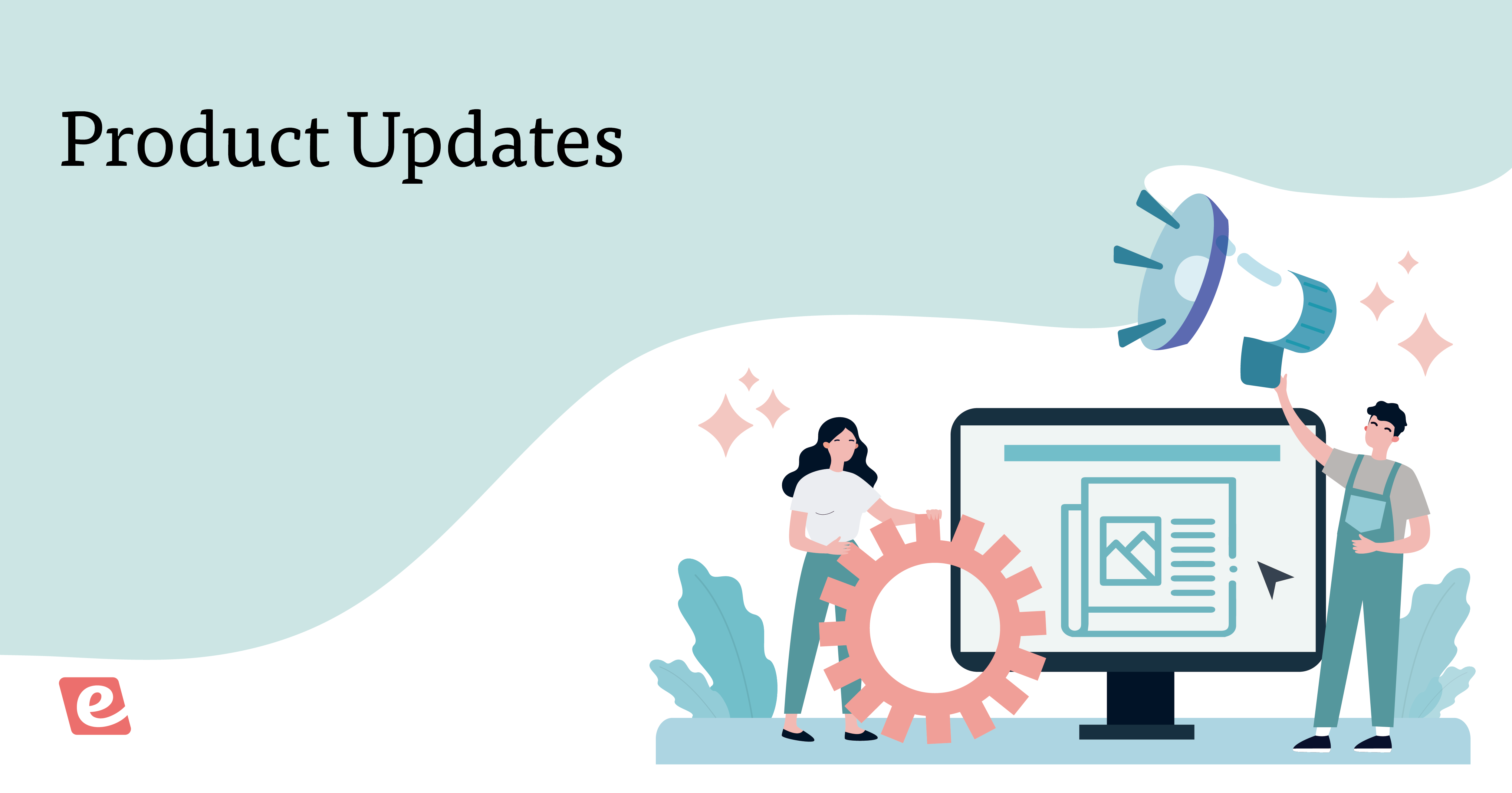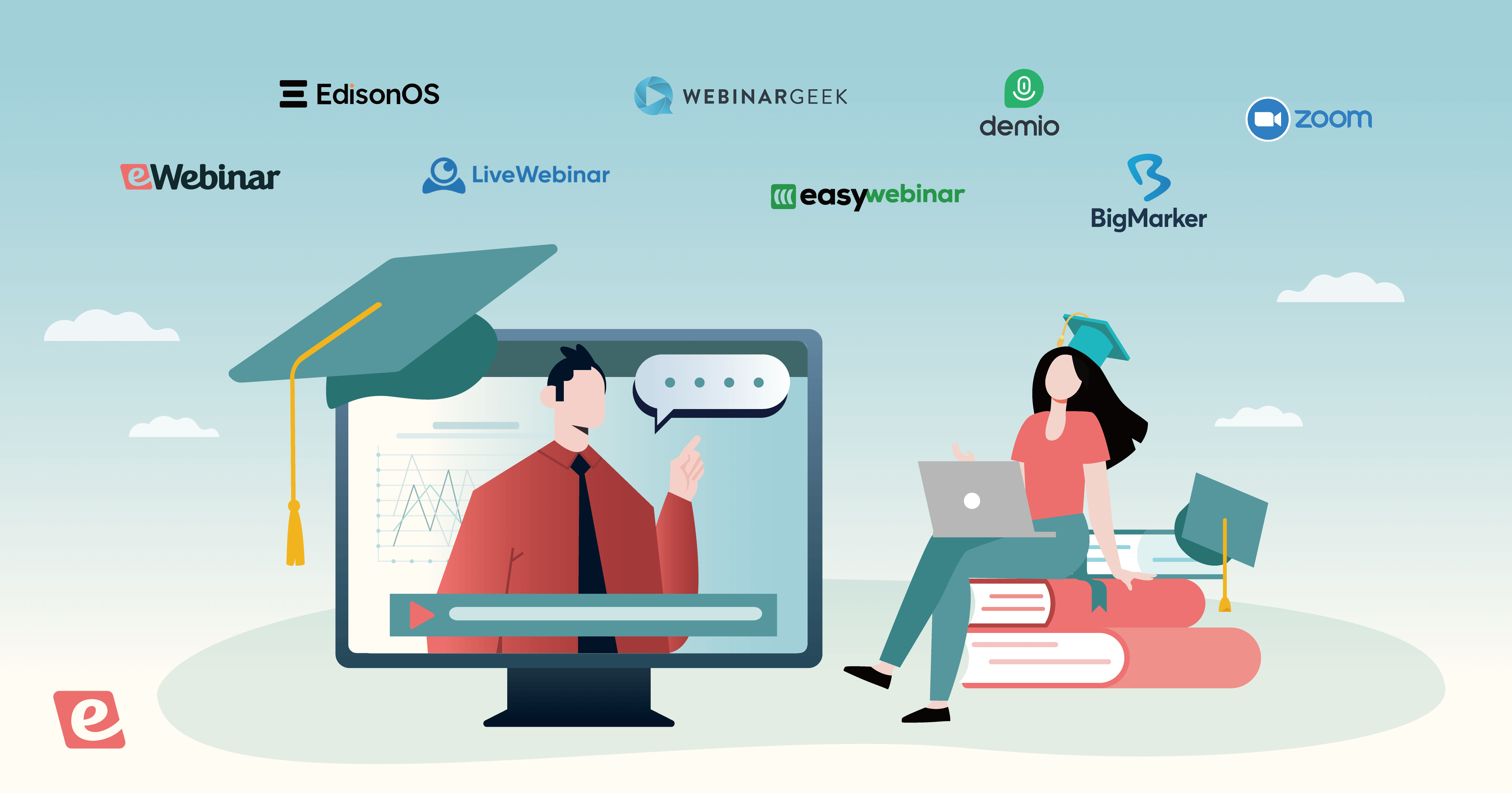Going live for the first time on a webinar can be daunting. Even if you are confident in your content, you still need to get your audience interested before you begin. The key to this is a well-thought-out introduction.
But what do you say when introducing a webinar? More specifically, how do you write a webinar introduction script?
We have created a guide, including some tips, tricks, and dos and don’ts to show you how to write a great webinar introduction script. We've also included some samples for you to work from.
Let’s dive right in!
What Makes a Great Webinar Introduction?
At the very least, a webinar introduction should introduce you and your topic, and explain exactly what the audience should expect from the webinar. This includes information such as how long the webinar is, any breaks, time for questions, and other key details.
A trick to making sure your introduction doesn’t sound too scripted is to start with notes or a simple draft. Then, practice your introduction out loud to get a natural flow. You can use AI transcription to transcribe as you are speaking so you don’t have to stop to take notes or transcribe later.
A compelling introduction will capture the audience’s attention straight away, ensuring participants stay to the end of the webinar and remain engaged throughout. Here are some tips to remember before you start writing your script:
- Start off strong: If you engage the audience straight away you are more likely to hold their interest for the rest of the webinar. Introduce yourself and always thank them for attending.
- Personalize: Yes, you can use script samples as a guide, but don’t forget to make them your own. Keep your target audience and subject matter in mind and personalize your introduction accordingly.
- Use simple, clear language: To ensure your webinar feels accessible to a variety of people, cut out any difficult language or unnecessary wording. If they can’t understand the introduction, they won’t stay for the webinar.
- Keep it short and informative: Your audience has come to see your webinar. Don’t bore them with endless talk during your introduction — just give them the information they actually need.
- Highlight the benefits: This could be information in the webinar, extra content sent to attendees, or other freebies. For example, a webinar on “Cyber Security Tips for Businesses” may include an exclusive link to a cybersecurity risk assessment template.
- Have a clear call to action: You may want viewers to review your webinar at the end, or visit your website for information on future webinars. Make this clear in the introduction so they know what to do after.
How to Write a Webinar Script
Here is our step-by-step guide to writing your webinar introduction script.
1. Greeting and Introduction
Always start with a polite greeting and thank your audience for joining. This shows that you appreciate them right from the start.
You may be thinking, “What do you say at the beginning of a webinar?” Do you introduce yourself first or your topic? Well, this depends on your webinar. If you are the face of your enterprise you may want to introduce yourself first.
If you are a speaker for a larger company, you will want to introduce the topic first.
Here are two samples to show you the difference:
Hello everyone. Thank you so much for joining. You may recognize me from my blog, I’m [name] and this is my webinar - How to Get Your Picky Eater to Try New Things
or
Hello everyone. Thank you so much for joining. Welcome to Only Domains’ webinar, How to Choose and Set Up Your Domain Name. I’m [name] [job title] here at Only Domains and I’ll be your speaker today.
2. Topic Overview
Now, it’s time to draw your audience in. Give them a brief overview of the webinar, including the topics you are going to cover. Keep it concise and informative, and remind your viewers why they want to join your webinar, which will keep them interested.
This is also the time to set your audience’s expectations. Let them know how long the webinar will be, along with any extra information they need. For example, did you send them a link to refer to during the webinar?
You can also mention any added benefits at this point. People love freebies and exclusive content. It’s always good to let them know what you will be sending them in advance to get them excited.
For example:
Don’t forget to check your inbox after this webinar because we’ll be sending you [insert freebie] right after we’ve finished. Also, if you have time we’d be so grateful if you’d fill out our questionnaire that will be sent with it. It helps us to improve things for you in the future.
3. Participation
The most difficult thing to master in webinars is engagement and participation. So, be clear to your audience that you want to hear from them. Let them know if you are happy to answer questions during the webinar, or if you have a specified question time after.
Remember that audiences prefer to ask questions as they go along. They may feel it is no longer relevant to ask a question later, or even just forget to ask.
Also, keep in mind that different webinar platforms work differently. So, assume that your audience has never used your chosen platform and show them exactly how to participate if they choose to. This includes how to use chat boxes or other chat features.
Tip: AI writing tools can help you generate welcome messages, popup captions, and more.
(Though we'd still recommend writing the call to action yourself.)
4. Introduce Your Speakers
Don’t forget to introduce everyone who will be speaking during your webinar, especially if there are guest speakers. Firstly, you don’t want to confuse your audience when you change speakers. But more importantly, if some attendees have joined the webinar specifically for a certain guest speaker then they will want confirmation that they'll still be speaking.
5. Address Any Latecomers
It's always a good idea to include a quick recap in your introduction script in case you have any latecomers. You should keep your intro as short as possible, so don’t repeat yourself if it’s not necessary. But you can add a little note to yourself to quickly welcome any latecomers and remind them of the topic before you get started.
6. Getting Started
Once you’ve gotten all the essential points out of the way don’t forget to let your viewers know the webinar is starting. It could be something as simple as “Let’s get started!”
Webinar Introduction Script Dos and Don’ts
These are our dos and don’t for your webinar introduction:
- Do use a conversational tone. Read through it a few times until it feels natural.
- Don’t just read off the script. This will sound forced and robotic.
- Do tailor your script to your audience. Use language they will understand.
- Don’t use overly complicated language. You will alienate your audience before the webinar has even started.
- Do keep it relevant to the audience. This will draw them in.
- Don’t worry about giving too much away in the introduction. The audience has already chosen to watch your webinar. Let them know what to expect.
You could also consider using AI transcription services to transcribe audio to text as you speak, eliminating the need to stop and take notes or transcribe later. This can help you maintain a natural flow during your introduction.
A Simple Sample Webinar Script
This is a simple sample webinar script we have created for you to edit as you please. It has the core sections needed to write a great webinar introduction.
It’s up to you to tailor it to your own webinar and target audience. Don’t forget that, like the best webinar titles, a great introduction is concise and straight to the point.
[Sample]
Hello everyone. Thank you so much for joining. Welcome to [webinar name]. I’m [name] [job title] and I’ll be your speaker today.
Over the next [timeframe] we will be talking about [topics - add a little detail]
Today, we are excited to have with us [guest speakers - job title/specialism/interesting information]. They will be speaking about [topic].
But before we get started there are just a couple of things I want to tell you so you can get the most out of this webinar.
Myself and any of the guest speakers are happy to answer questions as we go along. Please feel free to post them in the chat box at the bottom of the screen. There will also be time for a Q&A session at the end.
If you think of any questions afterward you can email us at [email].
In case you miss any of the webinars, or have to leave early, we will email everyone a link to rewatch it later. Also, keep an eye on your inbox for exclusive freebies once the webinar has ended. [elaborate].
Lastly, if you have time at the end we’d be so grateful if you’d fill out our questionnaire. It helps us to improve things for you in the future.
*In case of latecomers - For those of you who have just joined, welcome to [webinar name], with me [name] [job title].
Now if everyone’s ready, let’s get started!
Conclusion
Now you have everything you need to create a great webinar introduction script. Remember to include a polite greeting and make sure the audience knows what to expect. Then, highlight the most important topics to keep everyone engaged.
You want to appear natural and unscripted but still prepared — so start with an outline that includes everything you want to say then turn it into a simple, easy-to-follow script.
Now that you know how to write great webinar intros, it's time to learn How to Craft High-Converting Webinar CTAs!








